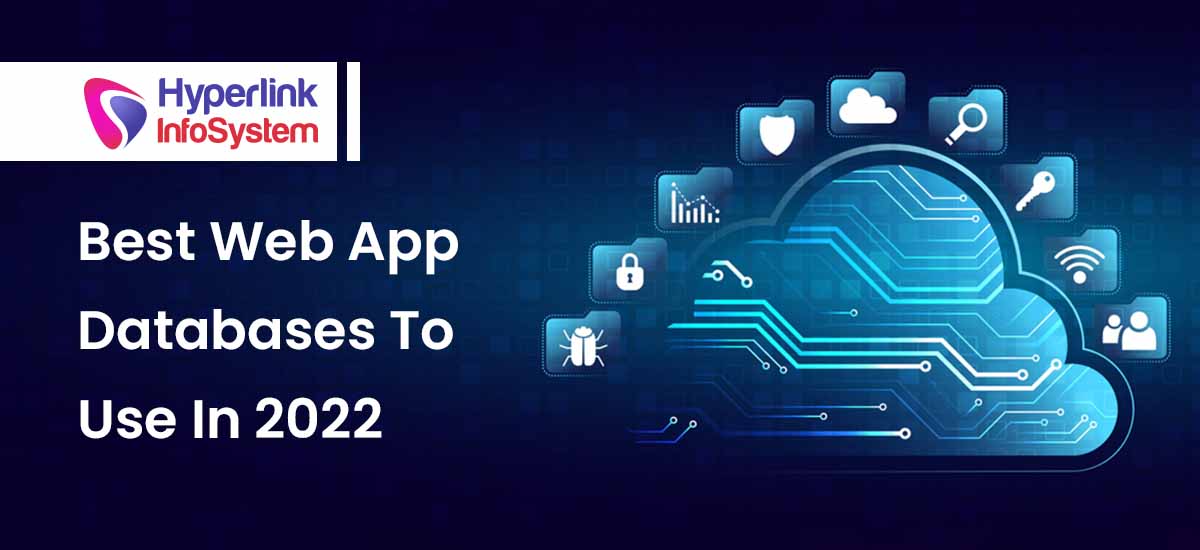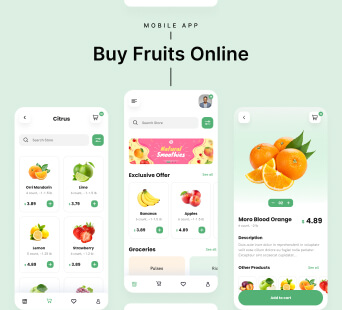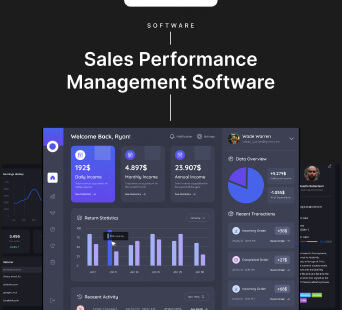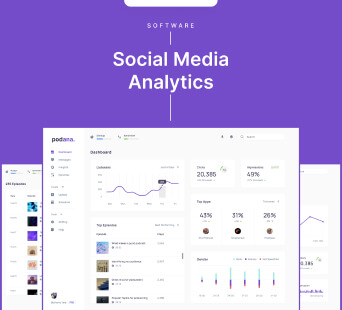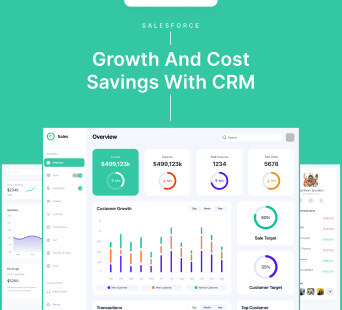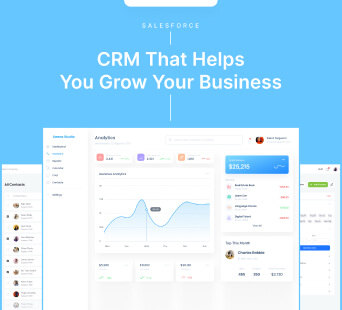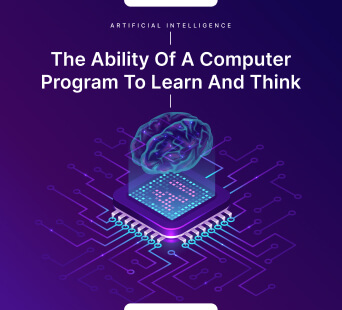Data is essential. Whether it could be physical or digital, we always need Databases to rely on. When it comes to Web app development, Databases play an important role in every situation whether you want to build a new web app solution or want to rebuild the existing one. It is always the relay on the best web app database.
Best Web App Databases According To The Web Developers' Recommendations That Are Trending In 2022
1) MySQL
One of the most reliable and most used databases since its invention in 1995 is MySQL. MySQL is an open-source Relational Database Management System(RDBMS) launched by Michael Widenius, Allan Larsson, and David Axmark. As the name says it all MySQL is based on Structured Query Language(SQL) which falls under the category of GNU General Public license but web and dedicated app developers can also use it with proprietary licenses. As of January 2022, MySQL ranks second with a ranking score of 1206.05 around the globe.
It allows software developers as well as a Database administrators to develop and deploy the next-gen Web, Embedded, Mobile, and Cloud Software-as-a-Service (SaaS) / Platform-as-a-Service (PaaS) / Database-as-a-Service (DBaaS) for framework and hardware platform developments for every OS such as Linux, Windows, Unix and many more. MySQL provides various benefits that make users choose MySQL over every other web app Database, such as:
- MySQL is really easy to use when it comes to deployment and development.
- It is more trustworthy due to the ACID (Atomicity, Consistency, Isolation, Durability) support.
- MySQL offers various fast-loading utilities with various memory caches to support and administer servers.
- MySQL supports PHP most, but it can be configured with any programming language without much effort.
- Web Developers can provide exceptional functionalities with high-performance outcomes using MySQL.
- The solid data security layers authorize web development companies to access databases using encrypted passwords to provide end to end security.
2) PostgreSQL
After the innovation of MySQL, Michael Ralph Stonebraker developed PostgreSQL in 1996. PostgreSQL is also a free database. It is an Open-Source Object-Relational Database Management System (ORDBMS) that highlights extensibility and SQL compliance. PostgreSQL supports many operating systems such as Windows, Linux, MacOSX, Unix and so on.
PostgreSQL provides enhanced support for extensibility, reliability, and data integrity along with handling data. PostgreSQL offers features such as Inheritance and Function Loading that help the users to perform their data handling goals. PostgreSQL offers various other features that make the users' tasks easier.
- PostgreSQL accommodates various constraints such as Primary Keys, Foreign Keys, Explicit Locks, Advisory Locks, Exclusion Constraints to ensure data integrity.
- The features such as Multi-Version Concurrency Control, SQL Sub-selects, complex SQL queries, Streaming Replication, etc make it more reliable.
- It is compatible with the Structured, Primitives, Customizations, Geometry, Document and various other multiple data types.
- It is admiringly extensible in various phases like JSON/SQL path expressions and Stored procedures and processes.
3) Microsoft SQL Server
In 1989, Microsoft developed a SQL server which still is the most favored SQL, ranking third best with the ranking score of 944.81. providing the most outstanding Relational Database Management System (RDBMS) for both On-premise and cloud environments. The basic architecture process and Transact-SQL Procedural languages of Microsoft SQL are almost similar to the Sybase SQL Server 4.2. The in-built intelligence of the database enhances business with its features to scale the performance, availability, and security seamlessly for every industry based on their requirements. Web developers can use Microsoft SQL on both operating system windows and Linux. The below listed amazing features of Microsoft SQL make them stand as the most secure and reliable Database in the analytics industry.
- Web developers can develop an outstanding shared Data Lake through the support of Microsoft SQL and other big data tools.
- Users do not have to move or replicate their data to get the insights through querying across their entire dataset.
- Microsoft SQL provides built-in features such as Data classification, protection, data monitoring, alerts on malicious activities, security breaches, misconfiguration and many more.
- It supports every form of database including Structured, Semi-structured, and Spatial data.
- App development companies can create designs, tables through graphical integration to view data informatively without syntax.
- Users can integrate data from any source with an extensive connector library and new transformations in the Microsoft SQL Server Analysis Services (SSAS) Tabular Model.
4) MongoDB
MongoDB is a scalable, flexible database platform that overcomes the relational database approach.
One of the latest Databases MongoDB was founded in 2007 by Dwight Merriman, Eliot Horowitz, and Kevin Ryan that can provide exceptional services to store high-volume data with ease. If you have an enormous amount of hierarchical data to store and do not want to compromise with the speed MongoDb is your web app database to go for. MongoDB is faster than any other RDBMS as it works around the CAP (Consistency, Availability, and Partition tolerance) concept. The out-of-the-box capabilities of MongoDB provide an exceptional level of flexibility by horizontal scaling and load balancing capacities. There are other features that help MongoDB to win the users' hearts such as:
- MongoDB is highly scalable even with more than 100 nodes and millions of documents of data.
- MongoDB provides high availability to develop clusters within the database with the replica sets.
- It is more flexible and adaptable as it stores data in documents.
- Users can not lose the data in any case of hardware failure or anything as it runs over multiple servers that balance the load and duplicate the data in another server.
- Users can represent the hierarchical relationships, store arrays, and other complex structures seamlessly as the data models are available within the database platform.
5) Oracle
Oracle is widely famous for its cost optimization and high performance across industries. Oracle supports SQL to interact with the database. It is the one and only Enterprise Relational Database that is designed for enterprise grid computing. It offers a multi-model relational Database management system. The latest update of Oracle Database 21C provides a wide range of capabilities including Multi-workload Improvement with AutoML.
Other features such as data support for Relational, Graph, Structured, and Unstructured information make Oracle one of the best Databases for web and app solutions with a ranking score of 1266.89. Along with that, it also offers various other benefits as well such as:
- It provides various outstanding features for business growth such as Real Application Clustering, Portability and many more.
- One of the most trusted and scalable databases for business growth.
- It supports smooth running in real-time applications with high data availability.
- Oracle provides powerful data availability with a high-performance computing environment.
- Oracle provides data even during sudden downtime.
- Oracle provides comprehensive recovery features that can bring out the unaffected data even from the failures while repairing the affected part simultaneously.
Conclusion
Those are some of the Web and databases that can help you manage your data easily. Is there any better existence than the above listed? If you know, reach out to our app developers and let us know.
